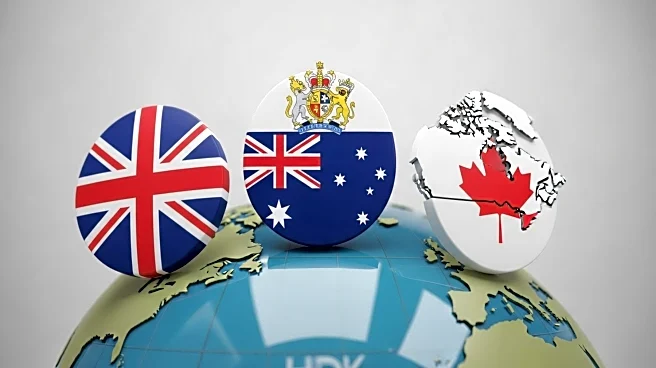What is the story about?
What's Happening?
The United Kingdom, Australia, and Canada have formally recognized the state of Palestine, a move that has been met with vocal opposition from the United States and Israel. This recognition marks a significant shift in the diplomatic stance of these countries, which have traditionally aligned closely with U.S. foreign policy in the Middle East. The decision comes amidst ongoing tensions and complex geopolitical dynamics in the region, where the status of Palestine has been a contentious issue for decades. The recognition by these allies could potentially influence other nations to reconsider their positions on Palestine, adding pressure on the U.S. and Israel to address the longstanding conflict.
Why It's Important?
The recognition of Palestine by major U.S. allies could have profound implications for international relations and Middle Eastern politics. It may lead to increased diplomatic isolation for the U.S. and Israel, as more countries might follow suit, altering the balance of power and influence in the region. This development could also impact peace negotiations, as it might empower Palestinian leaders to push for more favorable terms. Additionally, it could affect U.S. foreign policy, forcing a reevaluation of its approach to the Israeli-Palestinian conflict. The move underscores the shifting dynamics in global diplomacy, where traditional alliances are being tested by new geopolitical realities.
What's Next?
The recognition of Palestine by these countries is likely to provoke a range of responses from international stakeholders. The U.S. and Israel may intensify diplomatic efforts to counteract this recognition, possibly seeking to reinforce their alliances with other nations. There could be increased lobbying within international organizations such as the United Nations to address the implications of this recognition. Furthermore, Palestinian leaders may leverage this newfound support to advance their cause on the global stage, potentially leading to renewed calls for peace talks. The situation remains fluid, with potential for further developments as countries reassess their foreign policy strategies.

















